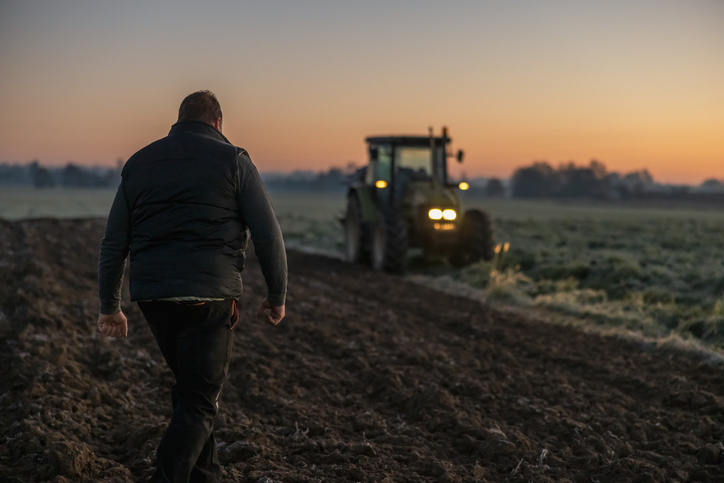Farmers face unique challenges and opportunities when it comes to estate planning, such as succession planning and land ownership or preservation, as well as the management of agricultural assets. Estate planning for farmers can help make the transition of farm ownership and management smooth from one generation to the next. By addressing potential challenges ahead of time, farmers can protect their legacy, provide for their families and maintain the continuity of their farming operations.
If you’d like someone to walk you through the process of estate planning for farmers, a financial advisor may be able to help.
Succession Planning Considerations
Succession planning is a key consideration when it comes to estate planning for farmers. Chances are, if you’re thinking of estate and succession planning, your goal is to hand your farm over to an heir or heirs. This means you’ll want to identify the right individuals to inherit and manage the farm, the ones you trust to continue its agricultural operations.
Knowing who to include in your succession plan can give you clarity and help you decide which direction you want to take your estate plan in, all with the end goal of preserving your legacy and supporting your family’s long-term well-being. Depending on your situation, here are three common scenarios to consider and best practices for succession planning:
- Passing on the farm to a single heir: If you are planning on passing the farm on to a single heir, you’ll want to choose someone who is both capable and interested in continuing its agricultural business. Your heir should possess the necessary skills and passion for farming, as well as a commitment to maintaining the farm’s operations. Clear communication and legal documentation can help outline the responsibilities and expectations for the heir. You might want to also provide training and mentorship to help prepare your chosen heir for the challenges and opportunities they’ll face in managing a farm.
- Farm succession with multiple heirs: In situations where there are multiple heirs involved, estate planning for farmers becomes more complex and more important. You’ll want to establish a fair and equitable plan that addresses the interests and abilities of each heir. This may involve dividing the farm into separate parcels, creating a co-ownership agreement, or establishing a family trust. Open communication among family members is going to be important to prevent conflicts and misunderstandings. Farmers can also consider professional mediation to facilitate discussions and reach a consensus on the best way to distribute the farm’s assets.
- Farm succession planning when there is no successor: When there is no obvious successor to take over the farm, estate planning for farmers can require more strategic solutions, especially if they want to preserve its agricultural use. One option is to lease the farm to another farmer or an agricultural business; this can give you a steady stream of income while allowing you to maintain ownership. You could also sell the farm to a trusted individual or organization that shares the same values as you and will continue to use the land for agriculture. You could also choose to establish a conservation easement, which protects the land from development while still allowing for agricultural use.
Other Estate Planning Considerations for Farmers

Farm succession planning isn’t just about accounting for the ownership and management of the land itself, but all the other assets that are essential to the agricultural operation, namely things like machinery, feed and livestock. Each one plays a role in the farm’s productivity and contributes to its value. Understanding how to manage these assets can also help you create a smooth transition for the farm and your heirs:
- Machinery: Farm machinery is a significant investment, and without it, most farms would not be able to function. When planning for succession, create a detailed inventory of all machinery, including tractors, harvesters and other equipment. One option is to pass the machinery on to your designated heir so they have the necessary tools to maintain the farm’s operations. Depending on your overall estate plan, you could also sell the machinery and distribute the proceeds among your heirs. Leasing the machinery to other farmers is also an option. This could give you a steady stream of income if you haven’t identified an immediate successor.
- Feed and livestock: Feed and livestock are other assets that require careful management during the succession process. Estate planning for farmers should include strategies for transferring ownership and care of these assets. If a single heir is taking over, establish clear guidelines for maintaining feed supplies and the health of all livestock. If there are multiple heirs, you could consider dividing livestock and feed proportionally, or establishing a co-ownership arrangement. You could also sell livestock and feed to generate income to support other aspects of the estate plan, especially if you don’t have an immediate successor.
Bottom Line

Estate planning for farmers should address the specific challenges of agricultural operations. You’ll need to carefully consider who will inherit the farm; manage key assets like machinery, feed and livestock; and explore various succession strategies, depending on your situation. Accounting for all of these aspects can help farmers transition smoothly from one generation to the next.
Estate Planning Tips
- If you’re creating a financial plan, a financial advisor can help. Finding a financial advisor doesn’t have to be hard. SmartAsset’s free tool matches you with up to three vetted financial advisors who serve your area, and you can have a free introductory call with your advisor matches to decide which one you feel is right for you. If you’re ready to find an advisor who can help you achieve your financial goals, get started now.
- If you’re considering a trust, remember to factor in the cost of creating one. There are fees if you’re working with an estate planning attorney. You’ll also pay a fee to the trustee if you’re assigning that task to someone other than yourself. And if you’re naming yourself as trustee, choose at least one person who could take over.
Photo credit: ©iStock.com/Dejan_Dundjerski, ©iStock.com/SimonSkafar, ©iStock.com/StockSeller_ukr
